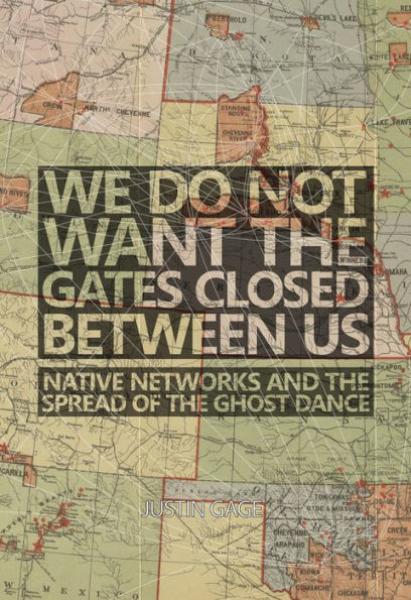Description
In the 1860s and 1870s, the United States government forced most western Native Americans to settle on reservations. These ever-shrinking pieces of land were meant to relocate, contain, and separate these Native peoples, isolating them from one another and from the white populations coursing through the plains. We Do Not Want the Gates Closed Between Us tells the story of how Native Americans resisted this effort by building vast intertribal networks of communication, threaded together by letter writing and off-reservation visiting.
Faced with the consequences of U.S. colonialism--the constraints, population loss, and destitution--Native Americans, far from passively accepting their fate, mobilized to control their own sources of information, spread and reinforce ideas, and collectively discuss and mount resistance against onerous government policies. Justin Gage traces these efforts, drawing on extensive new evidence, including more than one hundred letters written by nineteenth-century Native Americans. His work shows how Lakotas, Cheyennes, Utes, Shoshones, Kiowas, and dozens of other western tribal nations shrewdly used the U.S. government's repressive education system and mechanisms of American settler colonialism, notably the railroads and the Postal Service, to achieve their own ends. Thus Natives used literacy, a primary tool of assimilation for U.S. policymakers, to decolonize their lives much earlier than historians have noted.
Whereas previous histories have assumed that the Ghost Dance itself was responsible for the creation of brand-new networks among western tribes, this book suggests that the intertribal networks formed in the 1870s and 1880s actually facilitated the rapid dissemination of the Ghost Dance in 1889 and 1890. Documenting the evolution and operation of intertribal networking, Gage demonstrates its effectiveness--and recognizes for the first time how, through Native activism, long-distance, intercultural communication persisted in the colonized American West.
"Examines how Native Americans created vast intertribal networks of communication to control their own sources of information, spread and reinforce ideas, and collectively discuss and mobilize resistance against government policies during the late nineteenth century"--
Justin Gage is Instructor of History at the University of Arkansas, where he earned a doctorate in history, and is a Visiting Researcher at the University of Helsinki.
Product Details
- Longleaf Services on Beha Brand
- Sep 22, 2020 Pub Date:
- 0806167254 ISBN-10:
- 9780806167251 ISBN-13:
- 376 Pages
- 9 in * 6 in * 1 in Dimensions:
- 2 lb Weight:




